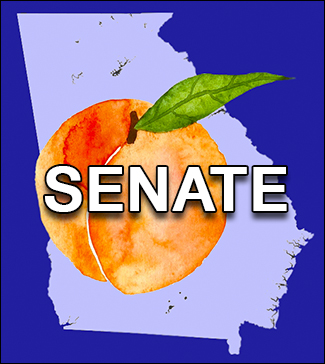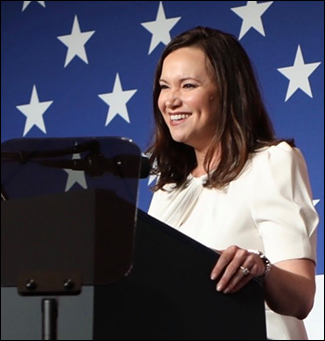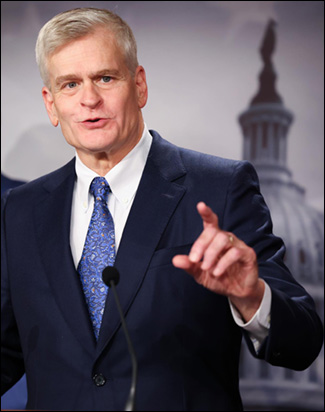By Jim Ellis — Thursday, Aug. 14, 2025
Senate
Former Ohio Sen. Sherrod Brown (D) announced earlier this week that he will return for a comeback attempt next year after losing his seat last November to Republican Bernie Moreno.Though Brown is a prodigious fundraiser and has had a successful decades-long political career, the numbers suggest reversing his 2024 loss will be a formidable task.
Last November, now-Sen. Moreno defeated Brown by 206,434 votes, or a victory percentage margin of 50.1 – 46.5. What makes Brown’s task more difficult in 2026 is that he actually received more votes in his defeat than he did in winning his previous election, a 2018 re-election victory over then-Rep. Jim Renacci (R). The cumulative results suggest the state is undergoing a major electoral shift.
In 2018, then-Sen. Brown was re-elected to a third term with a 53.4 – 46.6 percent win over Renacci. In that election, he garnered 2,355,923 votes. In his losing 2024 campaign, Sen. Brown’s vote total was 2,650,949, or 295,026 votes more than he received in his 2018 winning campaign.
In reality, even though Brown increased his vote total from six years previously, the 2024 end result proved a major underperformance. Because the Ohio turnout in the 2024 presidential election year was 29.2 percent higher than in the 2018 mid-term election, Sen. Brown would have needed to increase his vote total by 690,914 votes just to keep pace with his winning vote ratio from seven years ago.
Therefore, even with growing his vote total in 2024, Brown’s vote performance as it relates to his previous victory was substantially deficient.
In terms of the Ohio political landscape, Sen. Brown carried only 16 of the state’s 88 counties in 2018, yet his margins were large enough in the big counties to record a comfortable victory. In 2024, the counties he carried were cut in half, dropping to just eight of the 88 local entities.
Comparing Sen. Brown’s county win totals to that of President Biden in the same election year of 2024, the latter man carried one less. Only Lorain County, which Brown represented when he was in the US House and state legislature, voted for him in 2024, but chose President Trump in the national election. The other seven Biden counties also voted for Brown. The same seven counties supported Biden in 2020.
The loyal Democratic counties are no surprise and begin with the entities housing the three cities known as Ohio’s “C-PAC,” Cincinnati (Hamilton County), Cleveland (Cuyahoga), and Columbus (Franklin). The other counties continuing to vote Democratic are Lucas (Toledo), Montgomery (Dayton), and Summit (Akron). The only rural county voting with the Democrats lies along the state’s southeastern border shared with West Virginia, Athens County.
Therefore, for Brown, or any other statewide Ohio Democrat, to gain traction, the party nominees will have to substantially increase their performance over what we saw in 2024 and even 2020.
Though his vote totals did not yield a re-election victory, Sen. Brown did oversee a very successful 2024 fundraising operation. His campaign raised just over $103 million for his failed re-election effort, which was the second highest of any US Senate candidate, behind only Texas Sen. Ted Cruz’s (R) $107-plus million from a state more than twice the size of Ohio.
In contrast, Moreno raised just less than $27 million, which included a personal loan of $4.5 million to his campaign account. Outside spending, however, evened the resource imbalance, accounting for over $190 million toward the Republican cause as compared to just beyond $95 million to assist the Democratic side.
After the 2024 campaign, Brown reported a cash-on-hand figure of $394,230. Since he has not, heretofore, become an official candidate, we will not see a Brown campaign financial disclosure statement until mid-October.
For his part, appointed Sen. Jon Husted (R) has had a robust fundraising spurt since assuming the office after then-Sen. J.D. Vance (R) departed to become Vice President. Sen. Husted has raised just over $3 million and reports $2.65 million in his campaign account.
Sen. Husted is also an accomplished Ohio politician. Before running as Lieutenant Governor on Gov. Mike DeWine’s (R) ticket in the past two gubernatorial statewide elections, Husted was twice elected as Ohio’s Secretary of State, won an election to the state Senate, and served four terms in the state House of Representatives, including four years as Speaker.
The 2026 Ohio campaign appears to be another Senate race where we can already identify the general election combatants. Watch for another very expensive campaign to unfold, but with Ohio’s move to the right, Sen. Husted should be considered the favored candidate. The 2026 special election winner will serve the balance of the current term and then be eligible to run for a six-year term in 2028.







